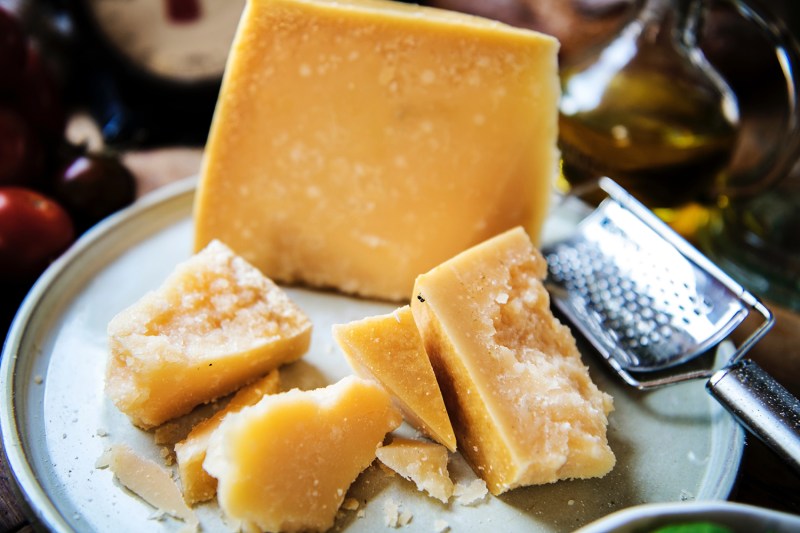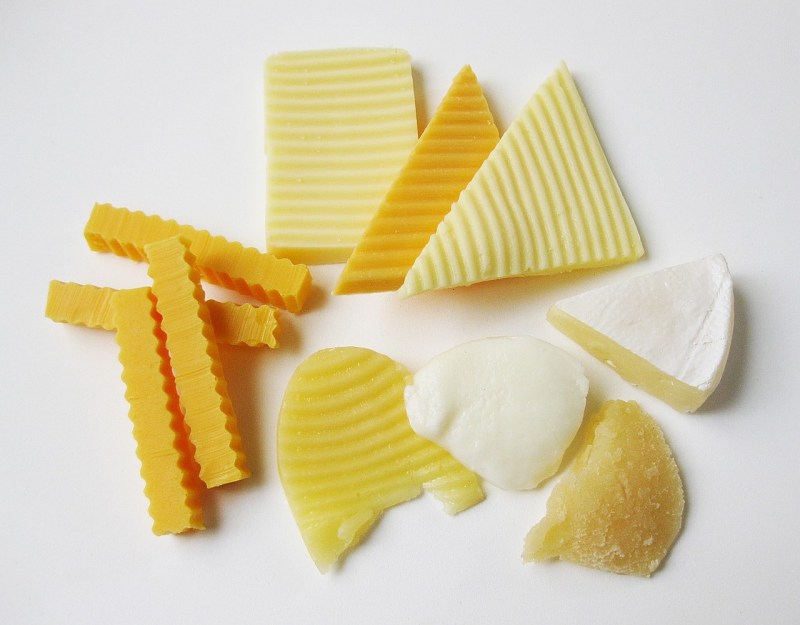
Cheese makes everything better – from salads to sandwiches and everything in between. Yet many people with digestive issues like irritable bowel syndrome (IBS) or lactose intolerance tend to shy away from cheese for fear of stomach upset. But not all cheeses are created equal. Many people do not know that different cheeses are categorized as soft or hard.
Soft cheeses such as ricotta or burrata cheese are creamy and delicious, but they contain high amounts of lactose, which can lead to many uncomfortable digestive symptoms. On the other hand, hard cheeses such as Pecorino Romano or Parmesan contain very little lactose, which makes them easier to digest. Certain hard cheeses also contain probiotics that can actually help improve gut health. Below, we’ll dive into everything you need to know about consuming cheese with GI issues and which types of cheeses may be best for your digestion.

Hard, aged cheeses vs. soft cheeses
You may not need to avoid cheese entirely if you suffer from lactose intolerance or other GI issues. Every person will respond differently to consuming different types of cheese, so you may need to experiment to figure out which cheeses don’t upset your stomach. The first thing that is important to understand is that lactose, also called milk sugar, can be especially difficult to digest for people with digestive conditions. People with lactose intolerance do not have enough of the enzyme lactase in their bodies, which is required to break down this milk sugar.
Unlike soft cheeses such as ricotta, which have high amounts of lactose, cheeses that are hard and aged generally have a lower lactose content. During the aging process, lactose is reduced, leaving the cheese with only trace amounts of lactose remaining. For this reason, aged, hard cheeses are often considered easier to digest.

Hard cheeses for digestive issues
These hard cheeses are the best choices for easy digestion and even contain good bacteria that can help improve your gut health. For any cheese, it’s important to consume it in moderation to avoid worsened symptoms.
Parmesan
Parmesan cheese is a hard Italian cheese that has a rich, slightly nutty flavor. This complex, aged cheese is often found in grated or shredded form and is the perfect addition to nearly any dish – from Caesar salad to a topping on a hearty slice of pizza. Parmesan cheese must be aged for at least a year, helping remove its lactose content. Not only is this type of cheese super low in lactose, but it also contains helpful lactobacillus bacteria that can actually support good gut health.
When shopping for parmesan cheese, be mindful of the product quality to ensure you’re getting 100% parmigiano-reggiano and not a blend of other cheeseses or fillers. Fillers used in pre-packaged shredded cheese, such as cellulose (wood pulp), may worsen digestive health.
Pecorino Romano
Pecorino Romano is another dry, hard cheese that is similar to Parmesan. Both cheeses are aged and salty and so similar that they are often substituted in recipes. The difference between these two cheeses, however, is in the type of milk used to make them. Pecorino Romano is a cheese that is made with sheep’s milk, while Parmesan uses cow’s milk. Parmesan also undergoes a longer aging process which makes the taste a bit more nutty.
This cheese is also nearly lactose-free, making it a great option for people with lactose intolerance or trouble digesting dairy products. Pecorino Romano also contains healthy bacteria strains that can help support a healthy microbiota.
Gruyère
Gruyère is a semi-hard cheese that is made from cow’s milk with a slightly nutty taste. Although similar to regular Swiss cheese, this cheese variety is a bit stronger, which makes it a great choice for certain dishes like tarts, gratins, and quiches. This cheese was first made in the town of Gruyère, Switzerland, where its name came from.
Since the lactose in this cheese is broken down during the aging process, many people with lactose intolerance find this cheese to be easy to consume. Even better, the natural bacteria Lactobacillus Helveticus that is found in Gruyère cheese may even help reduce inflammation in the gut and improve digestive issues.
Asiago
Asiago cheese is another lactose-free hard cheese, similar to Parmesan or Pecorino. This type of cheese has a sharper, nuttier taste, making it a great choice to add to pasta dishes or soups. Asiago was first produced in Italy, requiring at least five months to age to perfection. There are actually two types of asiago – asiago d’allevo and asiago pressato. These are both similar but have slightly different tastes, as the d’allevo variety requires a slightly longer aging process. For people adhering to a low FODMAP diet, the d’allevo variety may be better tolerated.

Finding cheeses that support your gut health
If you’ve been avoiding all cheese, try experimenting with small bits of hard cheeses that contain limited lactose. Some people may find these cheeses can be safely and comfortably added to their diets in moderation. Every person’s gut flora and health are completely different, which means there’s no one-size-fits-all approach to consuming cheeses with a digestive condition. Trial and error can help you learn which cheeses are best for you.
Editors' Recommendations
- Romaine lettuce, iceberg lettuce, and more: Science says one is actually the healthiest choice
- Going running? This is what (and when) to eat before you go
- Why is mushroom coffee suddenly so popular? We’ll tell you
- A registered dietitian reveals the ingredient swaps that will keep your favorite Christmas cookies from ruining your weight loss goals
- Chestnuts are a fall and winter favorite, and an RD tells us why you should be eating as many as you can




